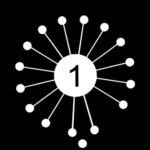Understanding area codes is essential in a world increasingly reliant on telecommunications. One such area code that often raises questions is 020. This article delves into the origins, usage, and significance of the 020 area code, providing a comprehensive understanding of its role in the telecommunication landscape.
Origins and History of the 020 Area Code
The 020 area code is primarily associated with London, the capital city of the United Kingdom. The evolution of London’s area codes reflects the city’s growing population and the increasing demand for telephone services over the years.
Pre-1990s Era: London’s Early Telephone Codes
Before the introduction of the 020 area code, London had different codes. Initially, the area code was 01, which covered the entire Greater London area. As the city expanded and the demand for telephone lines increased, the 01 code became insufficient.
Introduction of 071 and 081
In May 1990, the 01 code was split into two separate codes to better manage the growing number of telephone users. The inner London area was assigned the 071 code, while the outer London area received the 081 code. This change aimed to distribute the load more evenly and prevent the saturation of telephone lines.
PhONEday and the Birth of the 020 Code
On April 16, 1995, a significant restructuring of UK area codes occurred, known as PhONEday. During this event, a ‘1’ was added to the beginning of area codes across the country, turning 071 into 0171 and 081 into 0181. This change was part of a broader effort to expand the capacity of the UK’s telephone numbering system.
The Consolidation into 020
In June 1999, a further change was made to simplify London’s area codes. The 0171 and 0181 codes were merged into a single 020 area code, and the local numbers were extended from seven to eight digits. This consolidation aimed to simplify dialing procedures and provide a more cohesive structure for London’s telecommunication needs.
Geographical Coverage of the 020 Area Code
The 020 area code encompasses the entire Greater London area. However, within this area code, there are sub-codes, often referred to as 0203, 0207, and 0208. These sub-codes, while not official area codes themselves, help indicate specific regions within London.
0203: The New Kid on the Block
The 0203 sub-code was introduced in 2005 to address the growing demand for telephone numbers. Unlike the previous 0207 and 0208 sub-codes, which were geographically significant, the 0203 sub-code is used across both inner and outer London. This means that a number beginning with 0203 does not necessarily indicate the specific part of London it originates from.
0207 and 0208: Inner vs. Outer London
Traditionally, numbers beginning with 0207 are associated with Central London, while 0208 numbers are linked to the outer London boroughs. However, it’s important to note that this distinction has become less rigid over time, especially with the introduction of mobile phones and VoIP services, which can use any of these sub-codes regardless of physical location.
Significance of the 020 Area Code in Modern Telecommunications
The 020 area code plays a crucial role in the daily lives of Londoners and businesses operating in the city. It is not just a series of numbers but a part of London’s identity, signifying its status as a global hub for business, culture, and innovation.
Business and Economic Impact
For businesses, having an 020 area code can lend credibility and prestige. It signals to clients and partners that the business is located in one of the world’s most important financial and cultural centers. This can be particularly beneficial for startups and smaller companies looking to establish themselves in competitive markets.
Cultural and Social Relevance
On a cultural level, the 020 area code is ingrained in the fabric of London life. It is part of the city’s history and daily communications, connecting millions of people. Whether making a call to a friend or contacting a local business, the 020 area code is a constant presence.
Technological Advances and the Future of the 020 Area Code
As technology continues to evolve, the telecommunications landscape is changing rapidly. The rise of mobile phones, VoIP (Voice over Internet Protocol) services, and other digital communication methods has transformed how we use and think about area codes.
The Shift to Mobile and Digital Communications
Mobile phones have largely made geographic area codes less relevant for personal communication. A mobile number does not typically change when moving from one area to another, making the physical location less significant. Similarly, VoIP services allow users to choose numbers with any area code, regardless of their actual location.
Also, Explore
Potential Changes and Adaptations
Despite these changes, the 020 area code remains a vital part of London’s telecommunication infrastructure. The continued growth of the city and the ongoing demand for new telephone lines may necessitate further adaptations. This could include the introduction of new sub-codes or even more significant restructuring of the numbering system.
Frequently Asked Questions (FAQ) About the 020 Area Code
To further enhance understanding, here are some frequently asked questions about the 020 area code:
What is the 020 area code?
The 020 area code is the telephone area code for Greater London, UK.
When was the 020 area code introduced?
The 020 area code was introduced in June 1999, replacing the previous 0171 and 0181 codes.
What do the sub-codes 0203, 0207, and 0208 signify?
These sub-codes help indicate specific regions within London, with 0203 being a newer, non-geographically specific code, 0207 traditionally linked to Central London, and 0208 associated with outer London.
Can I have an 020 number if I am not in London?
Yes, with VoIP services and mobile phones, it is possible to have an 020 number even if you are not physically in London.
Why is the 020 area code important?
The 020 area code is essential for business credibility, cultural identity, and efficient telecommunications within London.
Conclusion
The 020 area code is more than just a set of digits; it is a symbol of London’s rich history, dynamic growth, and ongoing significance in the global arena. From its early days as 01 to the current structure of 0203, 0207, and 0208, this area code has evolved to meet the changing needs of the city’s residents and businesses. As technology continues to advance, the 020 area code will undoubtedly adapt, continuing to play a crucial role in London’s telecommunications landscape.















